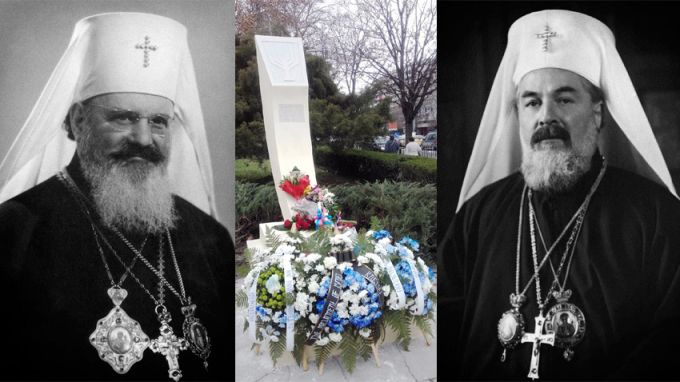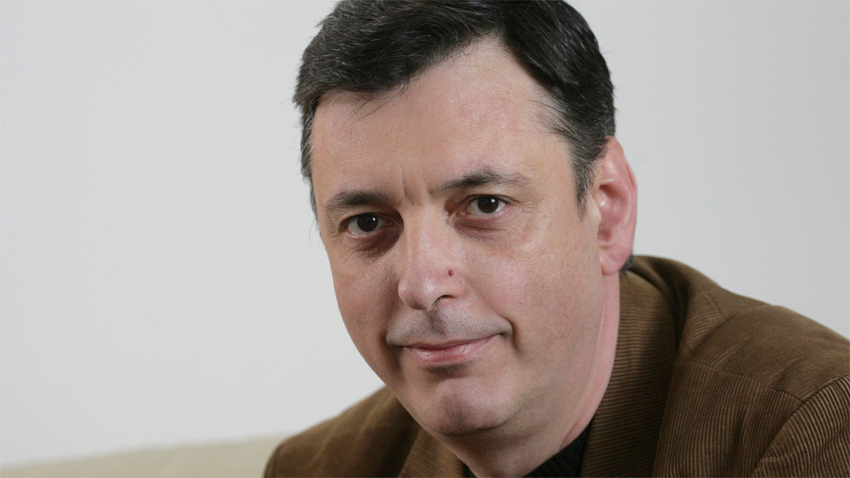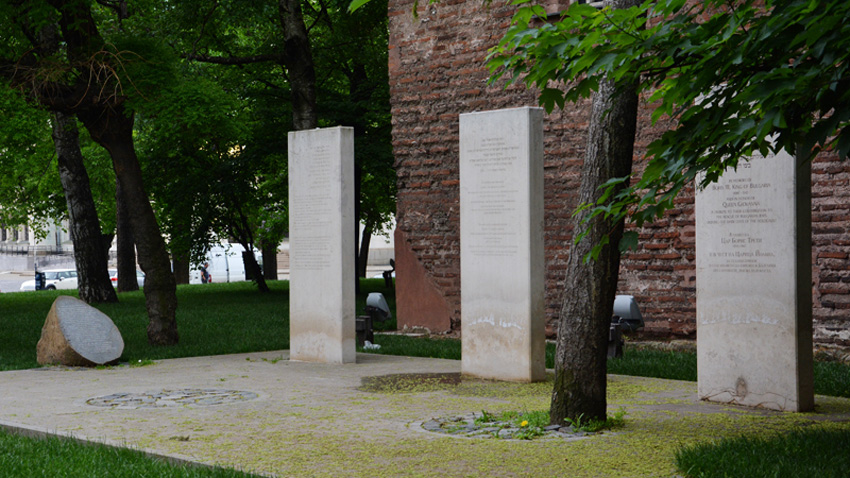
The Nobel committee will be holding its award ceremony in just a few months’ time and for the first time this year, Bulgaria is being mentioned in connection with the prizes. Because of the act of heroism of the Bulgarian Orthodox church and its enormous contribution to saving the lives of the Bulgarian Jews during World War 2, it was nominated for the most prestigious of prizes by the Jews it rescued and their heirs.
Almost 50,000 Jews living in the Bulgarian lands were not sent to the death camps thanks to the efforts of the public at large, but most of all to the fortitude of the church.
 “The fact itself that the biggest religious institution in this country stood as one against the deportation of the Jews is an amazing example of citizenship and this, on its part, gave society as a whole an impetus,” says journalist Goran Blagoev. “The church also suggested that Jews convert to Christianity, on paper only, so that they can be registered as Orthodox Christians and be saved. Of course, there is the prodigious example set by metropolitan bishop Kiril of Plovdiv, who jumped over the fencing of the school where Jews had been rounded up, despite the police orders not to come in contact with them. Or the angry letters and speeches by metropolitan bishop Stephan of Sofia against Tsar Boris and the government. The Holy Synod, to a great extent harboured anti-German sentiments, still, the guiding principle here was the Christian sense of duty that when there is someone in need they must be helped at any cost. And it would be well for Bulgarians in our day to follow this example, because, in modern times, there is no greater token of citizenship. Just imagine the kind of courage it took – Bulgaria was an ally to Nazi Germany with its all-powerful Gestapo and with a foreign army dislocated on its territory. And it was in these circumstances that the public said “No” to the deportation, with the Bulgarian Orthodox Church joining in as a leading factor.”
“The fact itself that the biggest religious institution in this country stood as one against the deportation of the Jews is an amazing example of citizenship and this, on its part, gave society as a whole an impetus,” says journalist Goran Blagoev. “The church also suggested that Jews convert to Christianity, on paper only, so that they can be registered as Orthodox Christians and be saved. Of course, there is the prodigious example set by metropolitan bishop Kiril of Plovdiv, who jumped over the fencing of the school where Jews had been rounded up, despite the police orders not to come in contact with them. Or the angry letters and speeches by metropolitan bishop Stephan of Sofia against Tsar Boris and the government. The Holy Synod, to a great extent harboured anti-German sentiments, still, the guiding principle here was the Christian sense of duty that when there is someone in need they must be helped at any cost. And it would be well for Bulgarians in our day to follow this example, because, in modern times, there is no greater token of citizenship. Just imagine the kind of courage it took – Bulgaria was an ally to Nazi Germany with its all-powerful Gestapo and with a foreign army dislocated on its territory. And it was in these circumstances that the public said “No” to the deportation, with the Bulgarian Orthodox Church joining in as a leading factor.”
However, just a few years later, the church did not repeat this act of heroism when, after a coup d’etat, the communist regime started the all-out persecution of its opponents. Alas, the Bulgarian Orthodox church was quickly overpowered and taken over by the repressive system, to be used as an embellishment by the atheistic regime.
“During what was termed as the “revival process” the church did not come out in defence of our compatriots of Turkish origin but, instead, played up to the powers that be, and that is something that does it no credit. It only goes to show that the Holy Synod, whose representatives still occupy the same building in our day, are a far cry from the clerics who once saved the Bulgarian Jews,” Goran Blagoev says further. And adds that he fears that if the Nobel Prize is awarded to the Bulgarian Orthodox church, the more than generous sum that goes with it will be sucked into the coffers of the Synod, which the public has every reason to hold accountable for its passivity regarding all kinds of social problems and its animosity to refugees.

“Far from reaching out to refugees, the church is now chasing them away, and that is neither human not Christian,” Goran Blagoev says. “The Gospel says that when someone needs our help we must reach out to them even if they are holding a knife behind their back. Because an outstretched hand is so much more disarming than a hand that chases away. And if we believe that everything happening in the world is the will of God, then the coming of refugees is part of that same plan. Why not win some of them over to Christianity, as some smaller religious communities have been doing? Many refugees have professions worthy of respect and are by no means terrorists, as some pundits have been trying to make out. If we help them, they can become citizens who will build our country – it would be enough if the church were to reach out to them. It is a question of wisdom, of foresight to look years or decades ahead into the future. But I fear that the Bulgarian Orthodox church, as represented by its clerics of today, lacks such wisdom or such foresight.”
Goran Blagoev says that even if the Bulgarian Orthodox church does not win a Nobel Peace Prize, the example set by the clerics in the years of World War 2 is something that will never pale.
“It shows us,” the journalist adds, “that whenever we seek out what is good, good shall triumph.”
English version: Milena Daynova
Photos: archiveThe head of the statue of Tyche, the goddess of Philippopolis, has been discovered in the Episcopal Basilica in Plovdiv, said the head of the excavations Lyubomir Merdzhanov. According to him, this is an extremely rare artefact that has been awaited..
105 years ago, on November 27, 1919, a treaty was signed in the Parisian suburb of Neuilly-sur-Seine, officially ending Bulgaria's participation in World War I (1914-1918). Historians define the document as "another national..
On November 25, the Bulgarian Orthodox Church honours the memory of St. Clement of Ohrid – a distinguished archbishop, teacher and scholar. He was among the most prominent disciples of the brothers Cyril and Methodius, the Holy Seven Apostles – the..
Today, the Bulgarian Orthodox Church commemorates St. Naum of Ohrid. Naum was a medieval Bulgarian scholar and writer. He was born around 830 and..
The first modern Christmas was celebrated in Bulgaria in 1879. It followed a European model with a Christmas tree, ice skating and gifts. At that..

+359 2 9336 661
